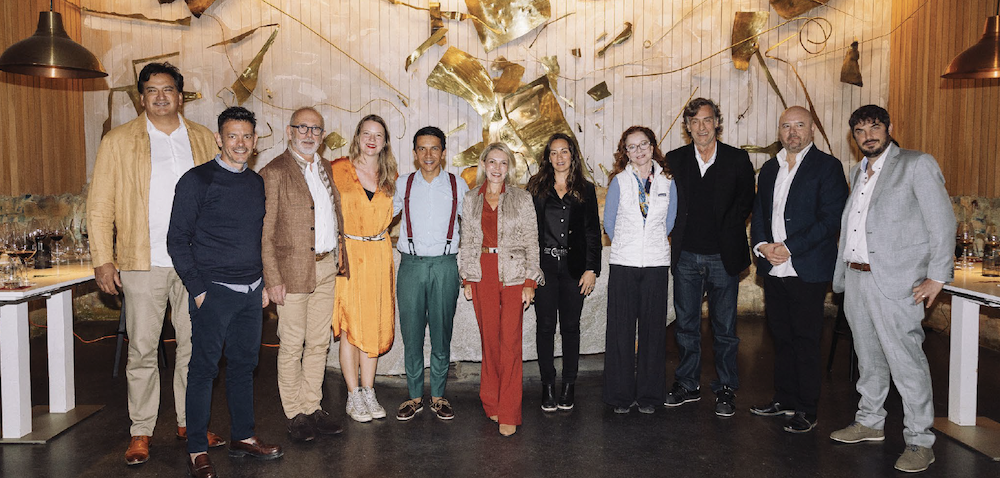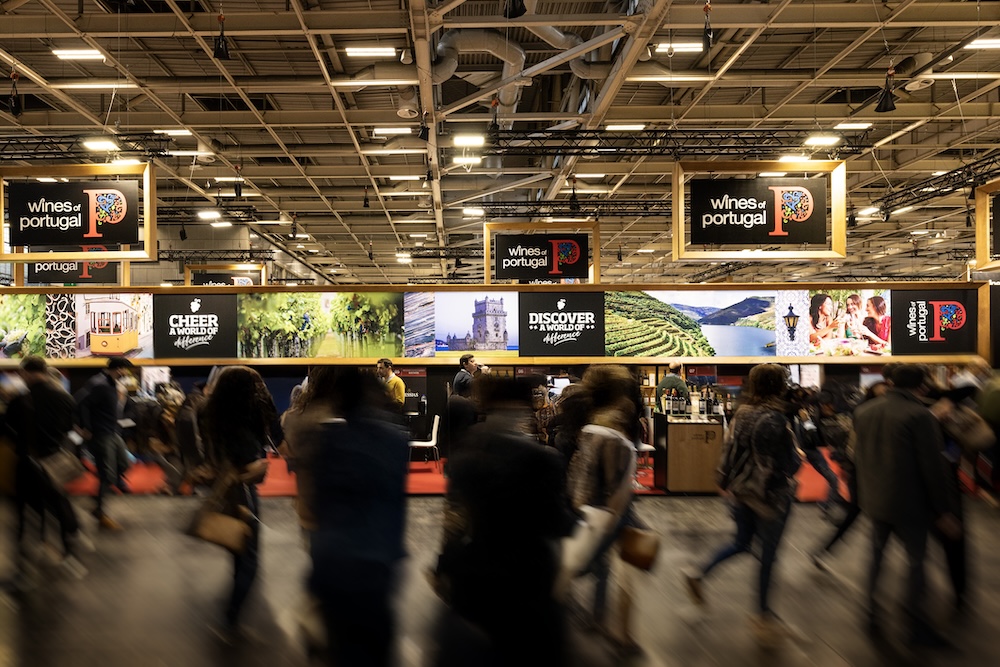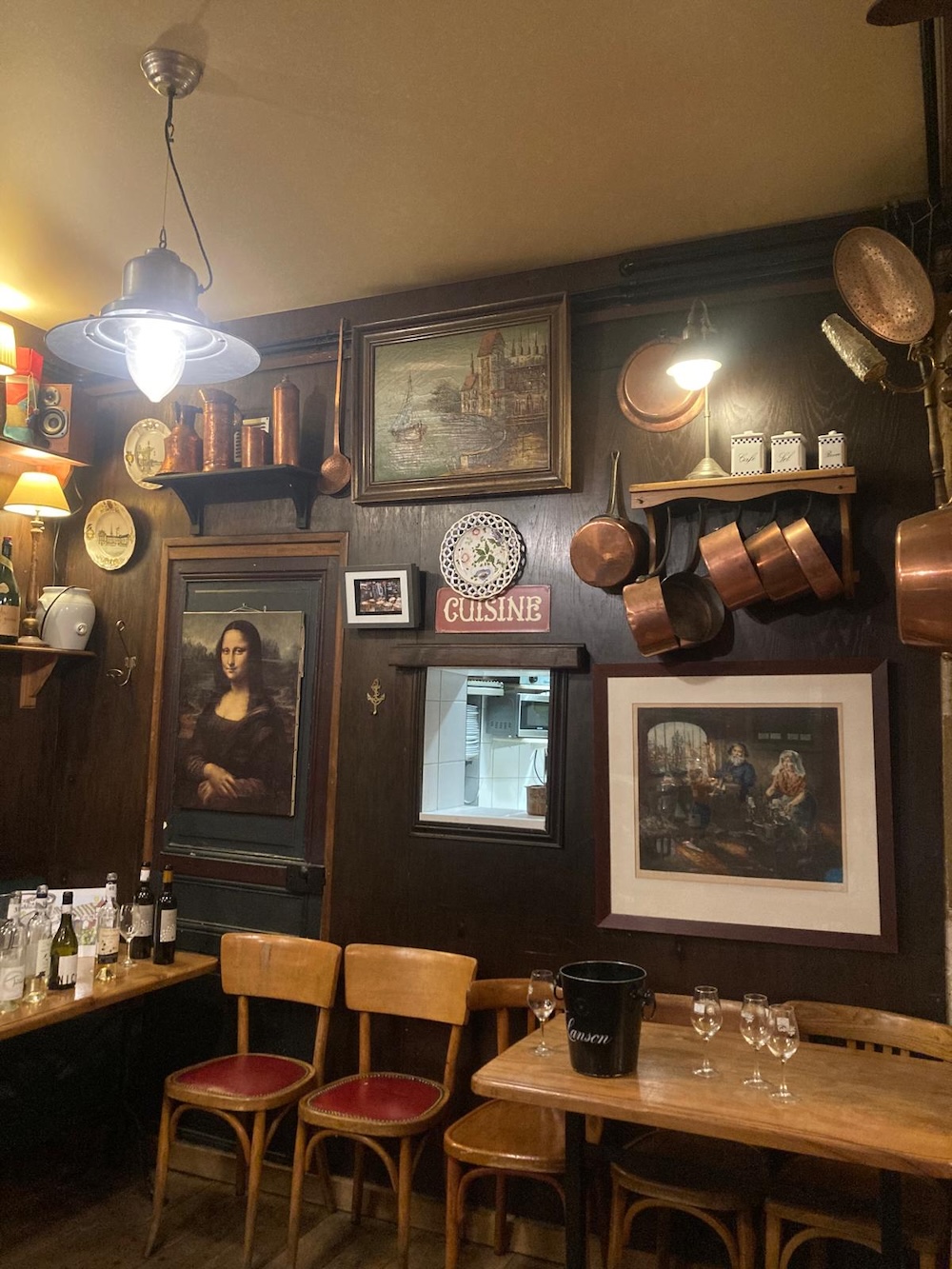
Discovery

Discovery
By Isabelle Escande - Photographs: courtesy of the estates, posted on 05 August 2024
A silent revolution has been in the making over the past few years in the Spanish wine industry. An expert in bulk wine sales – it is the world’s leading exporter country by volume – Spain is now aiming to improve its image and promote its quality wines internationally in a bid to move upmarket. We met four Spanish bodegas who explained how they have risen to the challenge.
The figures speak for themselves. With 931,562 hectares under vine, Spain has the most extensive vineyard area in the world. 15% of vineyards are now farmed organically, placing the country at the top of the global rankings. The industry is changing and seems to be intent on showing it. Although Spain has a clutch of internationally acclaimed appellations like Rioja and Priorat, it is still struggling to establish a reputation for itself as a quality benchmark. Its neighbours have much better-rehearsed narratives.
But times are changing. Since the 2000s, the number of Spanish bodegas that export has increased three-fold. Although the industry remains very concentrated with large companies cornering a significant chunk of export revenue, the number of wineries drawn to the international market, with a particular focus on quality exports, continues to rise, as does their efficacy. It has to be said that tapping into uber-competitive international markets is no easy task if you have no real defining features. Fortunately, in this regard Spain does have its own attributes, including many appellations, native grape varieties and myriad outstanding vineyard sites. One advantage its wines undeniably boast is their excellent value for money, and that is a powerful selling point.
In recent years, another aspect has been factored into the equation – marketing. As Esther Muñoz Iniesta from Bodega Barahonda stresses, its role has become pivotal in “finding one’s place in a constantly changing marketplace”, prompting exporting wineries to review their sales strategy. Some now excel at it, thereby demonstrating the formidable ability of the Spanish wine industry to adapt.
Yecla, where Bodega Barahonda is located, is an appellation with just 6,500 hectares of vineyards in the Murcia region which has begun to attract attention over the past few years. Its footprint may be small, but it certainly does not lack character. In fact, it boasts a number of specific attributes that make its wines unique. First of all is the climate, which experiences major temperature variations, from sweltering summers to winters when the mercury can plummet to -6°C. Then there is its native grape variety, Monastrell, which covers a dominant 85% of vineyard acreage and thrives around the Mediterranean rim. Another specific feature of the region is that it was mostly spared from phylloxera in the 19th century – it is therefore not uncommon to find own-rooted vines.
Yecla has a distinctive identity that is certainly worthwhile in an era where intense competition in foreign markets makes it essential to stand out from the crowd. Despite “an extensive choice of products”, particularly in Europe, Barahonda has unique selling points, explains the company’s marketing manager Esther Muñoz Iniesta. And these are all the more persuasive considering Barahonda’s target audience of consumers that show increased interest in under-the-radar, exclusive appellations.
With 90% of the winery’s products shipped abroad, this is an absolute blessing. Although the share of exports has not changed over the past few years due to its already high level, export volumes have risen. Traditional markets like the United States have been joined by new import markets like Asia. The winery’s efforts to attend the main industry exhibitions and fairs across the globe, and trade missions organised both abroad and at the winery, have reaped rewards. It’s now a well-oiled process.
Barahonda wines have garnered appeal in international markets because they offer “excellent value for money”, points out Iniesta. Despite this, the red, white and rosé wines are crafted with utmost care. In recent years, the team has focused its attention on the sustainability of the business, introducing bio-control methods in the vineyards – with pheromones for example – to avoid using pesticides and other chemicals. The winery combines innovation and modernity with tradition to continue along its successful path.
The founder’s great-grandchildren, Antonio and Alfredo, have run Bodega Barahonda since 1999.

Agustín Carrión, the winemaker at Barahonda.

The Monastrell vines at Barahonda are trained as bush vines and harvested by hand.
With its annual production of 15 million bottles distributed to over 40 countries, Bodega Cuatro Rayas is a co-operative to be reckoned with in DO Rueda, the cradle of Verdejo. In fact, 95% of the winery’s wines are made from this famous native variety which produces very fresh white wines showing vibrant acidity. This style of wine is an absolute winner with international consumers. Sara Manzanas, from the communications department, explains that within the company’s extensive product portfolio – spanning white, red, rosé, sweet and sparkling wine and vermouth – the young, fresh, very fruity and un-oaked bottlings are the most successful. White wines are enjoyed across the generations, “even though they are most popular with young people, and their consumption has risen virtually worldwide”. This is borne out by the co-operative’s export sales – accounting for around 15% of the total – which have doubled over the past ten years.
With its skilful choice of production methods, quality wines, modern designs and determination to innovate, the winery has successfully adapted to a range of international consumer expectations. And this “is no easy task”, admits Manzanas. “It requires in-depth knowledge of markets, companies and intermediaries which only comes with experience. There is no silver bullet for entering a specific market or relationship that guarantees successful transactions”. The co-operative does, however, have a few cards up its sleeve that make a difference – its strongly rooted values have garnered it several accolades.
One of Bodega Cuatro Rayas’ defining features is its strong commitment to sustainability, both environmental and social. “We describe this specific philosophy with two words – green & social. We take a proactive approach to improving the quality of life of our employees and people that live near our company”. The winery was recently singled out for distinction for its efforts to promote equality in the workplace for men and women. “We encourage generational turnover in the wine industry and place sustainable farming centre stage. A sizeable share of our vineyards are certified organic”. The winery’s commitments certainly command respect.

The two winemakers at Bodega Cuatro Rayas, Elena M. Oyagüe and Roberto L. Tello.
Bodega Cuatro Rayas was founded in 1935.

Bodega Cuatro Rayas’ long-standing markets are the United Kingdom, Holland, Belgium and Germany.
“Associating a brand with values that make the wine more recognisable for consumers can be a decisive purchasing cue”, stresses Eva Rodríguez, export sales executive at Bodegas Gallegas. “Also, the ability to tell a story and the ‘way things are done’ for every bottle of wine is a significant differentiator”. In terms of experience, the winery certainly has a rich narrative. From a modest family trading company founded by Manuel Vázquez, aka ‘Manolo Arnoya’, over sixty years ago in Arnoia, a small village in the heart of Ribeiro, the winery has become a renowned company with a presence in over 50 countries and a booming business in just a few decades.
In 2023, exports accounted for 48% of volume sales and the trend over the past ten years has been positive. The original range of import countries, like the United Kingdom, United States, Cameroon, Russia, Poland, Belgium, Korea, Japan, China, Australia, Sweden, Brazil and even the Dominican Republic, has now been joined by new destinations including Turkey, Ukraine, Mauritius, Italy, Azerbaijan and Georgia.
The time when Manuel Vázquez travelled personally by horse and cart to sell his products is now long gone. Nowadays, to consolidate its export sales, the winery takes part in trade missions to potential markets every year, organises visits to its clients’ and participates in exhibitions and international competitions. It is not shy in recruiting the help of public organisations to facilitate initial contacts in new markets, either. “We benefit from the help of the chambers of commerce and appellation councils which work as intermediaries”, explains Rodríguez.
“We feel that our wines’ value for money is our main competitive advantage. For appellation wines, we have focused our efforts on crafting very high quality wines with outstanding aroma and flavour profiles, whilst also placing emphasis on sustainable vineyard management and stringent fruit selection. Combined, this produces premium wines at highly competitive prices. For the entry-level table wines, we offer both very reasonable prices and top quality, which facilitates exports and wholesale distribution. Even when you add transport costs or special taxes at destination, as with Asian or American markets, the end price for consumers remains extremely attractive considering the high quality we offer them”.
The winery can also draw on its history and traditions as magnets for consumers. Its Ribeira Sacra wines, for example, are grown in one of the four European regions certified by the endorsement ‘heroic winegrowing’, which refers to vine growing in extremely challenging conditions. The company’s vines are located 500 metres above sea level on steep slopes with a gradient of around 40%. In addition to this, the system of terraced vineyards, locally known as ‘socalcos’ – surrounded by dry-stone walls made of schist – makes harvesting even more difficult. And that’s just one of the many distinctive features that make this winery unique.

Olga Verde, the winemaker at Bodegas Gallegas.

Bodegas Gallegas focuses on showcasing the region’s native grape varieties, primarily Albariño and Godello, which are highly prized.

The star grape variety in DO Rías Baixas, which enjoys the influence of the Atlantic, Albariño displays hallmark acidity, complexity and ageability.
With overseas sales last year of 16,000,000 litres and 90% of its wines shipped abroad, there is no denying this company’s export expertise. In fact, in 2022, it was even voted the “best export company”. Its aim, which is to “raise the prestige of Spanish wines worldwide by exceeding the expectations of our customers and surprising consumers with our quality, our designs and our commitment”, seems to have hit the right spot. And actually, one of its defining features is its ability to adapt to market demand.
Its extensive brand portfolio has developed based on industry requirements and trends. As an example, the company recently launched My Zero, its first alcohol-free wine made from top quality fruit fermented in stainless steel tanks. The juice then undergoes high-tech de-alcoholisation, preserving both freshness and aroma. The firm also markets natural wines – Nanit – orange wine (Nanit Orange Wine) and wines with a social commitment like its I’m Your Organic organic and vegan line. For each of the wines it sells, a tree is planted as a way of actively participating in reducing CO2 emissions.
Hammeken Cellars wines come from twenty-one Spanish appellations, including Rioja, Ribera del Duero, Priorat and Rías Baixas, allowing the company to provide a tailored response to consumer demand across the spectrum. Although the firm works in collaboration with several wineries including co-operatives across Spain, it recently acquired its own winery in DO Jumilla, Finca las Piñas, which will soon operate entirely with renewable energies. The aim is to “fuse wine traditions with new technology” and show unwavering respect for the environment, explains the company’s marketing manager David Añó. With this in mind, it has just launched a new AOC-certified bag-in-box format. “We have become experts in this type of container. Since 2010, we have been exporting boxes globally and our volume totals 2,000,000 units a year”. With its combination of innovation, quality and commitment, Hammeken Cellars has undeniably found the winning formula for success.

Nicholas Hammeken, director of Hammeken Cellars.

Nicholas Hammeken and Marcelo Morales in charge of the winemaking team.

The new Finca las Piñas winery which aspires to becoming self-sufficient in the near future.

Hammeken Cellars collaborates with Trees for the Future for its I’m Your Organic line, where for every bottle sold a tree is planted in deforested areas in Africa.

Discovery

Discovery

Discovery